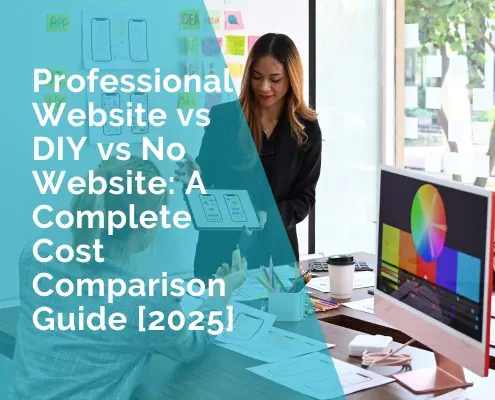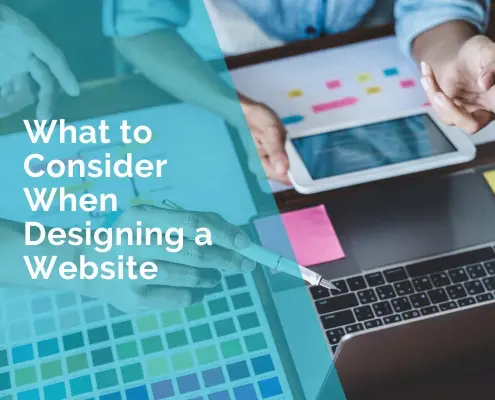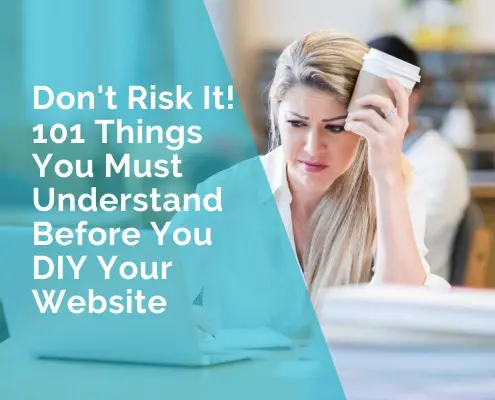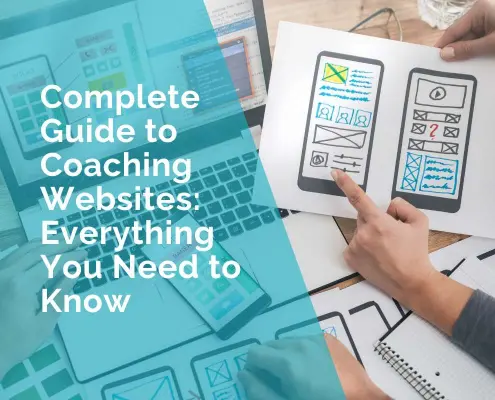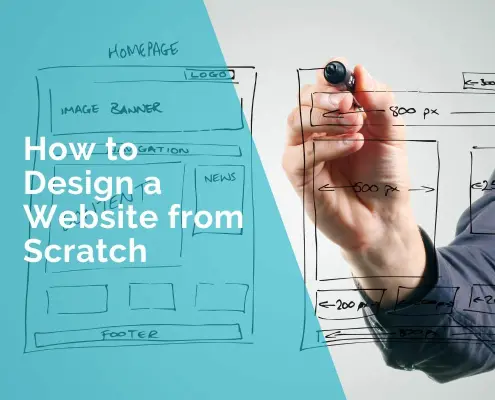What Are All the Small Business Website Costs You Might Incur?
Owning a small business is a dream for many people, but how much does it cost to get your website up and running?
Being a small business owner has many perks — you’re your own boss! — but, as the saying goes, it takes money to money. You may have a skill and a desire to be an entrepreneur, but becoming a small business owner means facing certain realities to see if your dream is even possible.
One of those realities is that owning a small business costs money, and one of the primary elements of a successful business is its website. Websites cost money to run, and they cost money to set up. As many as 88% of customers will not return to a website on which they had a bad experience.
Today, websites are the lifeblood of a business. Ecommerce has skyrocketed in recent years and was exacerbated by the pandemic. You must ensure you set up the best possible website to give your customers a great experience and help grow your business.
This article will dive into all the costs you may incur starting up and running a website for your small business.
What Are the Costs of a Small Business Website?
You’ll need all these elements if you want an excellent website to attract customers, keep them around long enough to get them interested and convert them into paying customers. Remember that these are just estimates, and every small business will have different needs. Research your competitors to see what their websites have to offer.
Let’s break down each necessary element of a solid website and give you an approximate cost.
Domain Name
Four factors will affect how much a domain name will cost for a small business. They are the TLD, the commitment length, domain privacy, and the registrar.
TLD (top-level domain): The more popular TLDs, such as .com and .org, tend to be more expensive than lesser-known ones like .site or .xyz.
Commitment length: A longer commitment usually leads to a lower price tag, while shorter contracts are more expensive in the short term.
Domain privacy: By obscuring your personal information from the public, you can protect yourself from spam and other online threats, which you can get for an additional fee.
The registrar you choose: Some registrars offer lower prices than others, so comparing rates is essential before making a purchase.
How Much?
A .com or .org domain name should only cost you between $10 and $20 yearly. If you have to purchase a common domain name that someone has prepurchased, this cost could be significantly more. It all depends on how much brand recognition you need for your domain name.
For example, a domain name such as jenniesqualityhandmadesoap.com should cost the minimum, but jenniessoap.com or handmadesoap.com may cost much more or be already taken.
Hosting Platform
When it comes to website hosting, small businesses have a lot of choices. They can choose between shared hosting, virtual private server (VPS) hosting, and dedicated server hosting.
Shared hosting is the most affordable and easiest to maintain of these three options. VPS hosting is a good choice for businesses that need more control over their hosting environment, and dedicated server hosting is best for companies with high traffic levels.
No matter which platform you choose, website hosting is a small business cost that should not be overlooked. A well-hosted website can provide a valuable online presence for your business and help you reach new customers.
How Much?
WordPress, Wix, Squarespace, and Woocommerce are some of the most common website hosting platforms. Wix and Squarespace, in particular, have risen in popularity in recent years because of their stunning templates. All are easy to use, require no coding skills, and are suitable for small businesses.
WordPress: Has over 10,000 themes to choose from, over 50,000 plugins and extensions, and costs anywhere from $0 to $250 per month.
Wix: Has over 300 themes, over 200 plugins and extensions, and costs between $0 and $15 monthly.
Woocommerce: Has over 20 themes, over 100 plugins and extensions, and costs between $0 and $250 per month.
Functionality
Some businesses need more functions than others, and the more you add, the more it costs. Here are some examples of functionality costs for which you’ll pay extra.
Ecommerce: You’ll need to invest in site design features that enable customers to find and purchase products. This can add $2,000 to your design costs. You’ll also need to invest in payment processing and delivery options that ensure a smooth, positive customer experience. These features can also be expensive, so make sure you factor these into your overall budget.
Subscriptions: Adding subscription functions to your website can increase costs and generate revenue. This can attract new customers, keep them coming back, and offer products or services that customers may not be able to find elsewhere. Businesses can build a closer relationship with customers by providing customized content or products that fit their needs. Most subscription add-ons run an extra $50 per month.
Memberships: You’ll need to invest in a license for the software that enables these features. Prices vary depending on the features and type of license you’re getting but can run you anywhere from $89 to $399 per year. Additionally, you’ll need to set up and manage a system for verifying members’ identities and granting access to the appropriate content. You’ll also need to create and maintain exclusive content only available to registered members. This is a significant undertaking and will require ongoing investment in time and resources.
How Much?
As you can see, depending on what your website offers, these costs can add anywhere from $50 to thousands of dollars per month to your budget.
SSL Certificate
An SSL certificate is a digital certificate authenticating the identity of your website and also encrypts information sent to the site. It’s vital for your website because it protects your customer’s sensitive data and personal information from being intercepted.
Without an SSL certificate, your customers’ data could be at risk of being stolen by hackers. You must purchase an SSL certificate and install it on your web server, which costs money, and you may also need to hire a developer to help you with the installation process.
How Much?
SSL certificates are issued by certification authorities and can cost anywhere from $10 to $1000 per month, depending on the size of your website.
Maintenance
Website maintenance is one cost that can easily be overlooked, but it’s integral to keeping your site up and running. Tasks part of website maintenance include fixing broken links, patching CMS and server software issues, and testing website forms and e-commerce functions.
Specialized agencies or web developers generally handle these tasks, and the cost will vary based on the size and complexity of your website. So be sure to budget for website maintenance when planning your overall budget. It may seem unnecessary, but it’s an investment that will pay off in the long run.
How Much?
If you do the maintenance yourself, it will cost you next to nothing. Having a professional take care of it will cost $5 to hundreds of dollars per month.
SEO
SEO is no longer an option for small business owners – it is mandatory if you want to be competitive online. Ranking high on search engines is key to driving traffic to your website. The cost of getting your website SEO keyword-optimized is something that all business owners should be aware of because it’s now necessary for online success.
There are various services out there that can help you optimize your website for specific keywords, and the cost varies depending on the size and complexity of your website. However, as a small business owner, it is crucial to ensure that you are doing everything possible to drive traffic to your site, and investing in SEO is a great way to do that.
How Much?
An agency will charge you up to $10,000 per month for initial optimization and then a few hundred monthly for upkeep. However, you can purchase many SEO software tools at much lower prices to help you with all your SEO needs.
Content Marketing
When it comes to content marketing, small business owners need to be aware of the cost. Producing quality content such as infographics, blogs, videos, images, and more can be expensive, but the investment is worth it. There are a few things to keep in mind when deciding whether or not you are capable of creating content yourself:
Do you know who your target audience is?
What are your goals do you want to achieve with your content?
How much time and effort will you put into creating quality content?
How much time can you dedicate to publishing new content?
If you can answer these questions, you can create your content yourself. If not, consider purchasing software to help or hiring a professional. Remember that quality content takes time and effort, so you’ll need to be prepared to invest resources if you want to see results.
How Much?
Expect to pay about $500 for quality infographics and a few thousand dollars for high-quality videos. You may have to pay a content writer $15 to $50 per hour to write SEO-friendly blogs, ad copy, landing pages, etc. Or you can pay about $50 monthly for AI writing software and write everything yourself quickly and professionally — even if you’re not a copywriter.
Social Media
Small business owners must know that social media marketing and content creation can be costly investments. However, it can be a great way to reach new customers and grow your business if done correctly.
Hiring a social media manager or an agency to handle content marketing and create quality content can be expensive, but it is worth the investment. Additionally, ensure you are using all of the free tools available to you, such as Facebook Insights, Google Analytics, and Twitter Analytics, to track your progress and measure your results.
How Much?
Using a marketing agency to take care of your social media content and management could run anywhere from $50 a month to a few thousand.
Now that you know the costs of building and running a small business website let’s break down the three ways you can get there and the pros and cons of each.
Here’s How Much It Costs to Build a Small Business Website…
…On Your Own
Building your own website can be very cost-effective, especially if you have web development experience. In total, you’re realistically looking at about $500-$1000 in expenses to get up and running.
The main cost is your time, so it’s essential to factor that into your decision-making process. Even for an uncomplicated site, it will probably take 20 to 40 hours to produce decent-quality website content and functions that you can be proud of.
This, of course, assumes you’re already somewhat familiar with how to build a website. However, if you have no website-building experience, you can expect that number to rise.
Other costs are web hosting, domain registration, and design/development tools and services. Building your own website is obviously the most cost-effective way to get the job done.
Pros
Save money
Learn skills
Test ideas yourself
Cons
Time-consuming
There’s a learning curve
Quality might not be there
…Using a Professional
When it comes to website development, you can either choose to do it in-house or outsource it to a web developer. The cost of having someone build your website for you will vary depending on the developer you choose and your website’s features and complexity.
On the lower end of the scale, you can pay around $50 to $250 to hire a freelance developer to create a simple website for you. However, if your website needs are more complex or you want a custom design, you could pay anywhere from $500 to $20,000 or even more.
The cost will depend on how large your business is, which will be reflected in how complex and large your website needs to be.
Here is a quick breakdown of how much it would cost to build a website for businesses of differing sizes.
Small-sized business: Less than 20 pages, stock photos, and basic functions – $2,000 to $10,000.
Medium-sized business: Commercial websites with less than 75 pages, payment integrations, custom design and layouts, and unique functions – $10,000 to $30,000.
Large-sized business: A massive website with over 100 pages, custom design, unique functionality, and other custom features – over $40,000.
Ecommerce business: Ecommerce websites are very common for small businesses. They allow you to display the products you have for sale and are a way for people to pay for them. The price depends on the number of products you have, but it will cost $5,000 to $50,000.
Professional web development firms will often charge more than freelance developers, but they can also provide a higher quality of work. It’s essential to do your research before hiring a developer to know what you’re getting for your money.
Pros
Your website will be sleek, functional, and professional
Faster timeline than learning how to do everything yourself
They could also help you manage the site
Cons
Expensive
If you want to make future changes, you’ll have to hire another developer
It might be hard to get on the same page as the developer
…Hiring an Agency
Regarding website design and development, businesses can either handle the project in-house or outsource it to a professional web design agency.
Design agencies can charge tens of thousands of dollars (maybe even up to $100,000) for their services, which is why their client base usually consists of large organizations with complex projects. However, businesses willing to invest in a professionally designed website can reap various benefits, such as increased brand awareness, improved customer engagement, and even higher profits.
Pros
Have the tools to tackle any and all projects
All-in-one services
Can help with your marketing strategy
Cons
Prohibitively expensive for many small businesses
It will take longer to complete
They might not prioritize your small business project
As you can see, there are three vastly different prices for building a small business website. Choose the one that suits your skills and needs best.
Conclusion
Being a small business owner has many advantages over working for someone else. You make the rules. You are your own boss. You work your own hours.
There are many costs associated with small businesses, starting with your website. Your website is the easiest gateway for customers to find and interact with you. A robust and well-designed website could be the difference between success and failure.
Before starting your small business, you must know the costs of creating the best website. If you can create a website and get it running on your budget, you’ll have a much better chance of success.
***
Author Bio
 Andrew Dunn is a serial business builder with over seven years of experience growing businesses. He is the founder of INDMND.com, providing valuable insights for business owners to leverage technology to 10x their businesses. He is passionate about scaling businesses using SEO, paid media, and remote teams.
Andrew Dunn is a serial business builder with over seven years of experience growing businesses. He is the founder of INDMND.com, providing valuable insights for business owners to leverage technology to 10x their businesses. He is passionate about scaling businesses using SEO, paid media, and remote teams.




